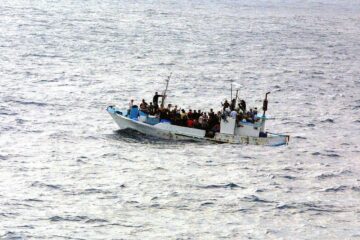![]()
Introduction:
United Nations is an international organization. Its formation took place after the Second World War in 1945. United States President Franklin D. Roosevelt named the term “United Nations”. The establishment of UN took place to serve first and foremost as a collective security organization, tasked with the maintenance of international peace and security as its primary objective; but also with responsibilities in the fields of human rights cooperation and economic and social progress. At present, there are 193 nations as member states. There are six principal organs[1] of the UN along with various specialized agencies and affiliated organizations.[2]
The Charter of UN governs it, which is the result of a multilateral treaty by its members. It not only deals with the constitution of the UN; but also describes the rights and duties of member States. It sets out various vital principles of international relations. They range from sovereign equality of States to the prohibition of the use of force in. It is also known as an instrument of international law. One of the aims and objectives of the Charter is to establish conditions under which justice and respect for the obligations arising from treaties and other sources of international law can be maintained.
International Law
International law lays down the legal responsibilities of States in their behavior towards each other, and their treatment of individuals within State boundaries. Its domain covers a wide range of issues of international discourse such as human rights, international crime, disarmament, the refugee problem, migration, nationality problem, the use of force, and the conduct of war etc. Further, it also regulates the global issues such as the environment and sustainable development, international waters, outer space, global communications, and world trade.[3]
UN Organs And International Law
UN has six principal organs which are the General Assembly, the Economic and Social Council, the Security Council the International Court of Justice, the Trusteeship Council, and the UN Secretariat. There has always been a certain reluctance to agree on the law-making role of UN organs. The reasons for this are many; emphasis on state sovereignty, theories of law development the Charter reinforces, distinctions between ‘decisions’ and ‘recommendations’ etc. Despite this reluctance, the development of International Law[4] is one of the primary objectives of UN political organs.
General Assembly
- The General Assembly and International Law
The major deliberative, policymaking and representative organ of the UN is The General Assembly. The General Assembly represents all nations which are Member States of the UN. Many multilateral treaties adopted by the General Assembly and subsequently opened for signature and ratification. The UN Charter authorizes the assembly to commence studies and make recommendations to promote the development and codification of international law.[5]Article 13(1) of the Charter allows this provision.
Some subordinate bodies of the General Assembly review specific areas of international law and report to the plenary. Many legal matters are referred to the Sixth Committee which then reports to the plenary. UN Commission on International Trade Law & International Law Commission both report to the Assembly. Further, the Assembly also examines issues in relation to the institutional law of the United Nations; such as the adoption of the Staff Regulations and the establishment of the system of internal justice mechanism.
- General Assembly Sixth Committee
The General Assembly Sixth Committee is the main forum for the consideration of legal questions in the General Assembly. In the sixth committee, all UN Member States are entitled to representation.
- International Law Commission
The International Law Commission encourages the codification and progressive development of international law with the balance between the two. One of the conventions made by the International Law Commission with the supervision of the General Assembly are:-
the Convention on the Law of Treaties between States and International Organizations adopted in the Vienna Conference of 1986.
- United Nations Commission on International Trade Law
In international trade law, the United Nations Commission on International Trade Law is the main legal body of the UN; with universal membership that specializes in commercial law; it’s aim and focus is on the modernization and harmonization of rules on international business. The UNCITRAL Secretariat has established case law on UNICTRAL texts –
a system for collecting and circulating information on court decisions and arbitrary awards related to the Conventions and Model Laws; these arise from the work of the Commission.
- International Court of Justice
International Court of Justice is the chief judicial organ of the United Nations. It is also known as the World Court and was founded in 1946. The Court consists of 15 judges who are elected for the 9-year term Assembly and the Council. The member states are under an obligation to comply with the decision of ICJ in the cases to which they are parties. This principle body of the UN settles legal disputes by States in accordance with international law. It gives advisory opinions on legal questions referred to it from authorized UN organs and specialized agencies. Till now, the Court has taken almost 170 cases and issued numerous judgments and given advisory opinions as per requests by UN organizations; thus, in a way, contributing to the development of law.
The Court addressed various international disputes in its judgments involving passage rights, non-interference in the internal affairs, diplomatic relations, economic rights, hostage-taking, the non-use of force asylum right and nationality. States bring such disputes before the Court in search of a solution to their problems based on law. The Court helped often to reduce the escalation of disputes by getting a peaceful settlement on issues of land frontiers, territorial sovereignty & maritime boundaries,
- The Security Council and International Law
Under the UN Charter, the Security Council has principal for the maintenance of international peace and security. It has 15 Members. Some of the actions of the Security The actions of Council such as peacekeeping operation, sanctions, special tribunals, and resolutions adopted under Chapter VII of the Charter have international implications. In accordance with Article 13(b) of the Rome Statute, the Security Council can refer certain situations to the Prosecutor of the International Criminal Court if it believes international crimes (such as genocide, crimes against humanity, etc.) have been committed. Further, in some cases, the Security Council can resort to imposing sanctions and has the power to use force to maintain or restore international peace and security.
Apart from carrying out its tasks, the Security Council also participates in the invocation of legal norms which are not a formal part of the Charter system. The question of rights of passage through the Suez Canal is a case in point. The demand by Egypt for the withdrawal of British troops in 1947 is another example. The work of the Economic and Social Council and the Trusteeship Council, has largely been channeled to the General Assembly. Secretary-General gives a legal opinion to the Secretariat and through this makes a contribution in the interpretation of Charter.
Development Towards International Law
- Firstly, these organs pass resolutions which can be stated as confirmatory of present law wherein earlier doubts existed and are now cleared.[6]
- Secondly, the decisions taken by these organs with regard to their own jurisdiction and competence when allowed by considerable numbers over a period of time form the “Charter Law” if these decisions fall under some recognizable pattern. A customary practice of internal Charter practice thus becomes established.
- Thirdly, to arrive at a resolution the Security Council might point out beyond the relevance of certain Charter articles to a particular situation and in a way indicate specific rules of general international law that govern the case in question. [7]
Conclusion
International law is a wide field and there is no established judicial system for the settlement of disputes. In such a situation, the UN and its organs have created a means for the world community to enforce international law upon members who violate its charter. Further, these UN organs help to focus attention upon the mutual observance of the rules. Also, the repeated practice of every organ in interpreting the treaty establishes a practice and ultimately custom thus contributing to International law.
References:
[1] Who We Are (n.d.). Retrieved May 26, 2020, from https://www.unsceb.org/content/who-we-are
[2] Directory of United Nations System Organizations. (n.d.). Retrieved May 26, 2020, from https://www.unsceb.org/directory
[3] Uphold International Law. (n.d.). Retrieved May 26, 2020, from https://www.un.org/en/sections/what-we-do/uphold-international-law/
[4] Gross, L. (1984). The Development of International Law through the United Nations. Essays on International Law and Organization, 183–224. doi: 10.1007/978-94-017-7048-4_6
[5] Ibid.
[6] Infra note 7.
[7] Schachter, O., & Higgins, R. (1965). The Development of International Law Through the Political Organs of the United Nations. The American Journal of International Law, 59(1), 168. doi: 10.2307/2197159



0 Comments